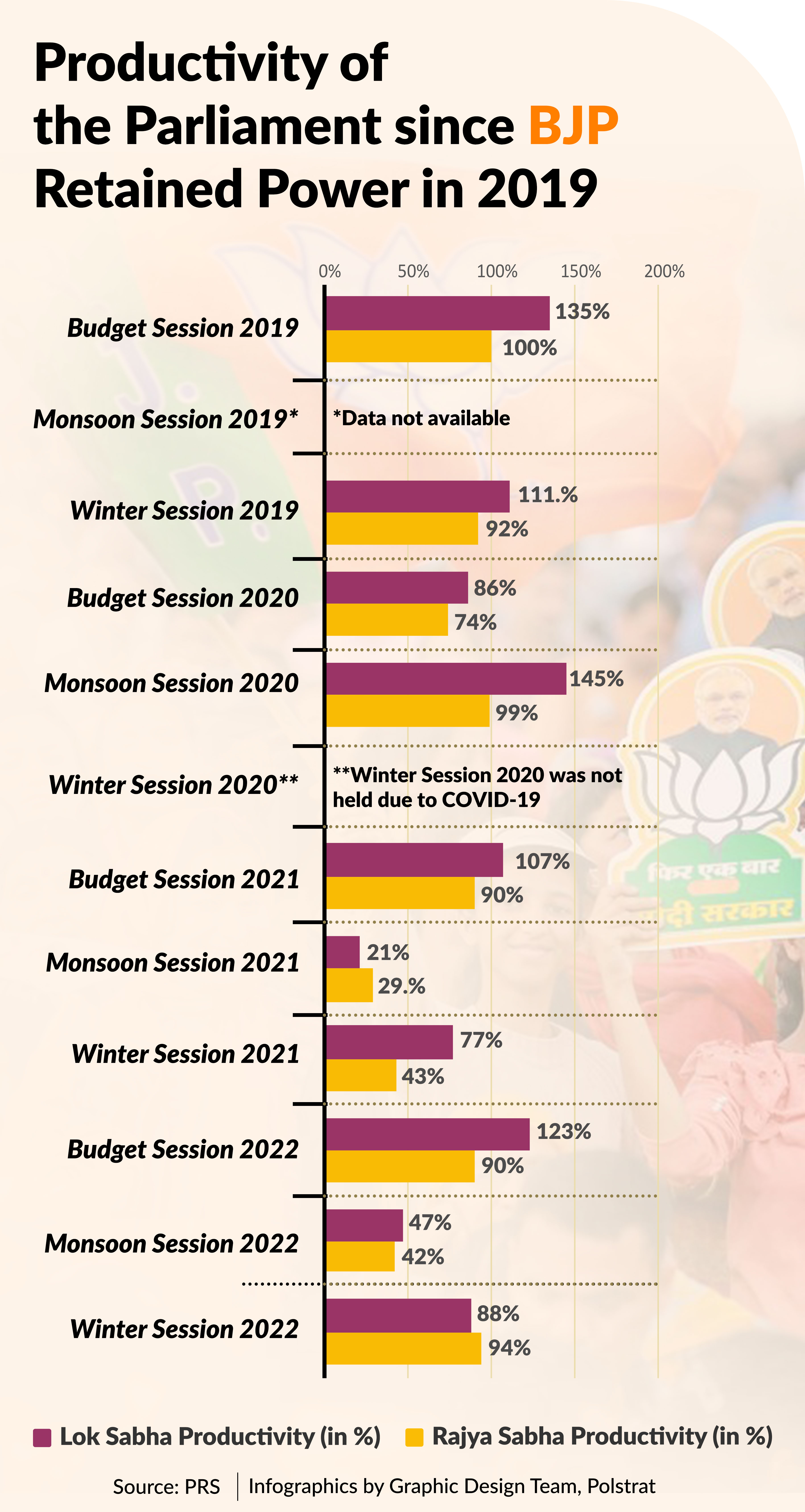As 2022 drew to a close last week, the Indian government also concluded the winter session of the Parliament, a week earlier than scheduled. The winter session, which started on 7th December ended on 23rd December. In this Parliamentary session, the Lok Sabha functioned 88 per cent of the scheduled times, while Rajya Sabha functioned 94 per cent of the scheduled times. Question hour functioned in the lower house of the Parliament for 60 per cent of the scheduled time, while the upper house functioned question hour for 83 per cent of the scheduled time. Both houses recorded higher productivity than previous sessions – discussions were smooth sailing, barring some walkouts and sloganeering by opposition party members. Rajya Sabha discussed the effects of global warming in light of the recently concluded 27th Conference of the Parties to the United Nations Framework Convention on Climate Change (COP27). Lok Sabha members spent around five hours discussing the need of promoting sports in India, which was a continuation of the debate from the Budget and monsoon session of the Parliament. Union Health Minister Mansukh Mandaviya addressed both houses of the Parliament regarding the COVID-19 situation in the country, especially with regard to the ongoing situation in China and South Korea, detailing the precautionary measures being taken by the government. Let us take a delve into the bills passed during the winter sessions and the main issues brought forward by the opposition.
The Constitution (Scheduled Tribes) Order (Second & Third Amendment) Bill, 2022
The Bill, which was also introduced in the Lok Sabha on 9th December, aimed to amend the list of tribal communities which are deemed to be Schedule Tribes (STs) in Himachal Pradesh. The amendment to the Bill, which was passed during the winter session of the Parliament includes the Hatti community of the Trans Giri area of Sirmour district in the list of STs in Himachal Pradesh. During the 2022 Assembly elections in the state, the Bharatiya Janata Party (BJP)-led government granted the Hattis, a term used to describe a social group comprising mainly Rajputs and Brahmins, ST status in September. The BJP had promised the Hattis this in their 2009 election manifesto but finally delivered only in 2022. The move was met with protests from the state’s Dalit community, which comprises 25 per cent of the state’s population. The community believes the move could impact its own reservation. The Parliament also passed The Constitution (Scheduled Tribes) Order (Second Amendment) Bill, 2022. The Bill seeks to amend the Constitution (Scheduled Tribes) Order, 1950, with respect to its application to Tamil Nadu. The Bill added the Narikurava (also called Narikuravar) and Kuruvikaran communities to the list of STs in Tamil Nadu.
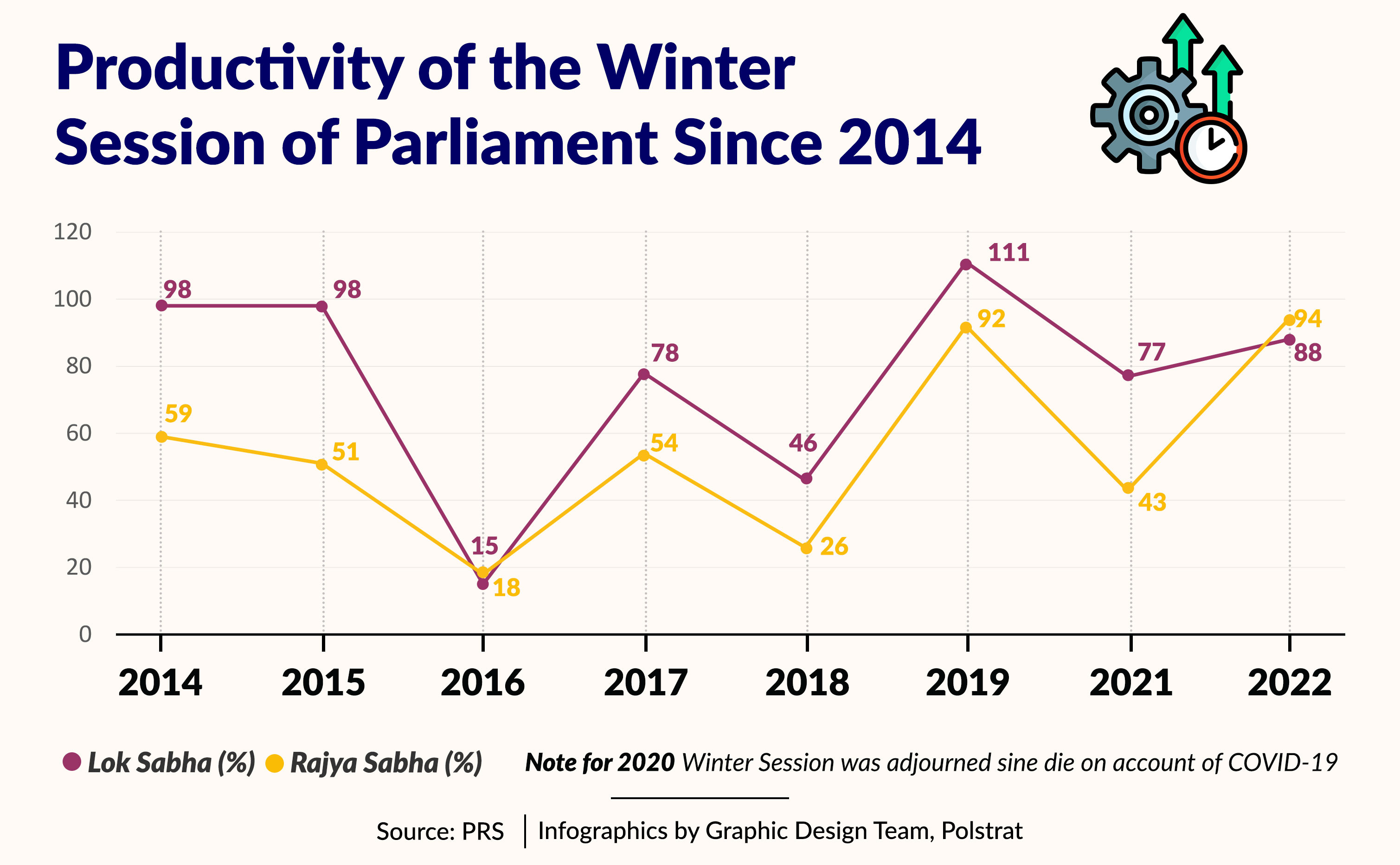
Other Scheduled Castes and Scheduled Tribes Bills
Various other amendments to the Constitution (Scheduled Tribes) (Uttar Pradesh) Order, 1967 (ST Order) and the Constitution (Scheduled Castes) Order, 1950 (SC Order) with respect to other states were also passed during the winter session. One of the bills passed modified the list of STs in Chhattisgarh to include the Dhanuhar, Dhanuwar, Kisan, Saunra, Saonra, and Binjhia communities. Another amendment with respect to Uttar Pradesh modified the SC order to exclude the Gond community of the state as a Scheduled Caste (SC) in four districts, and instead recognize this community as an ST in these districts.
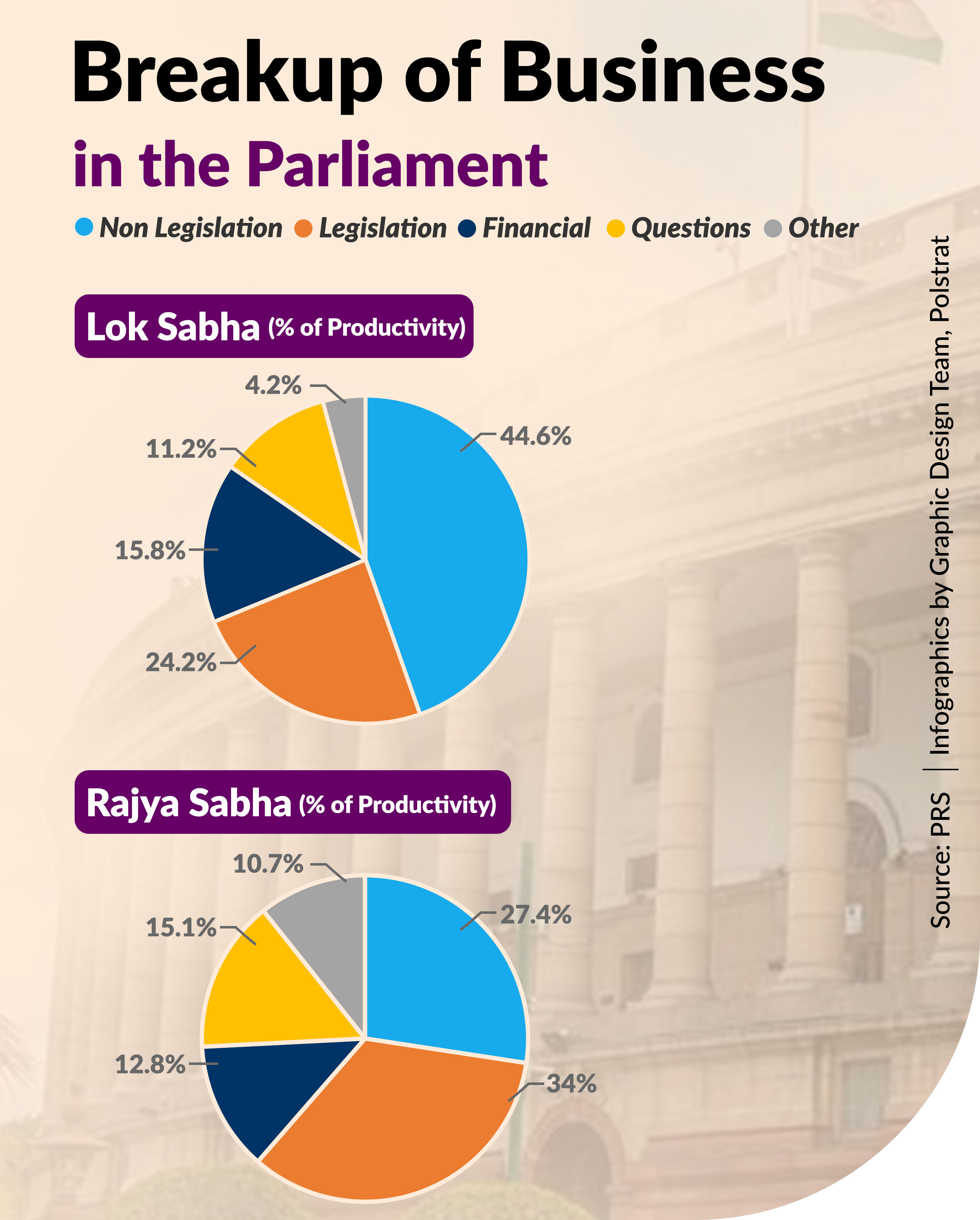
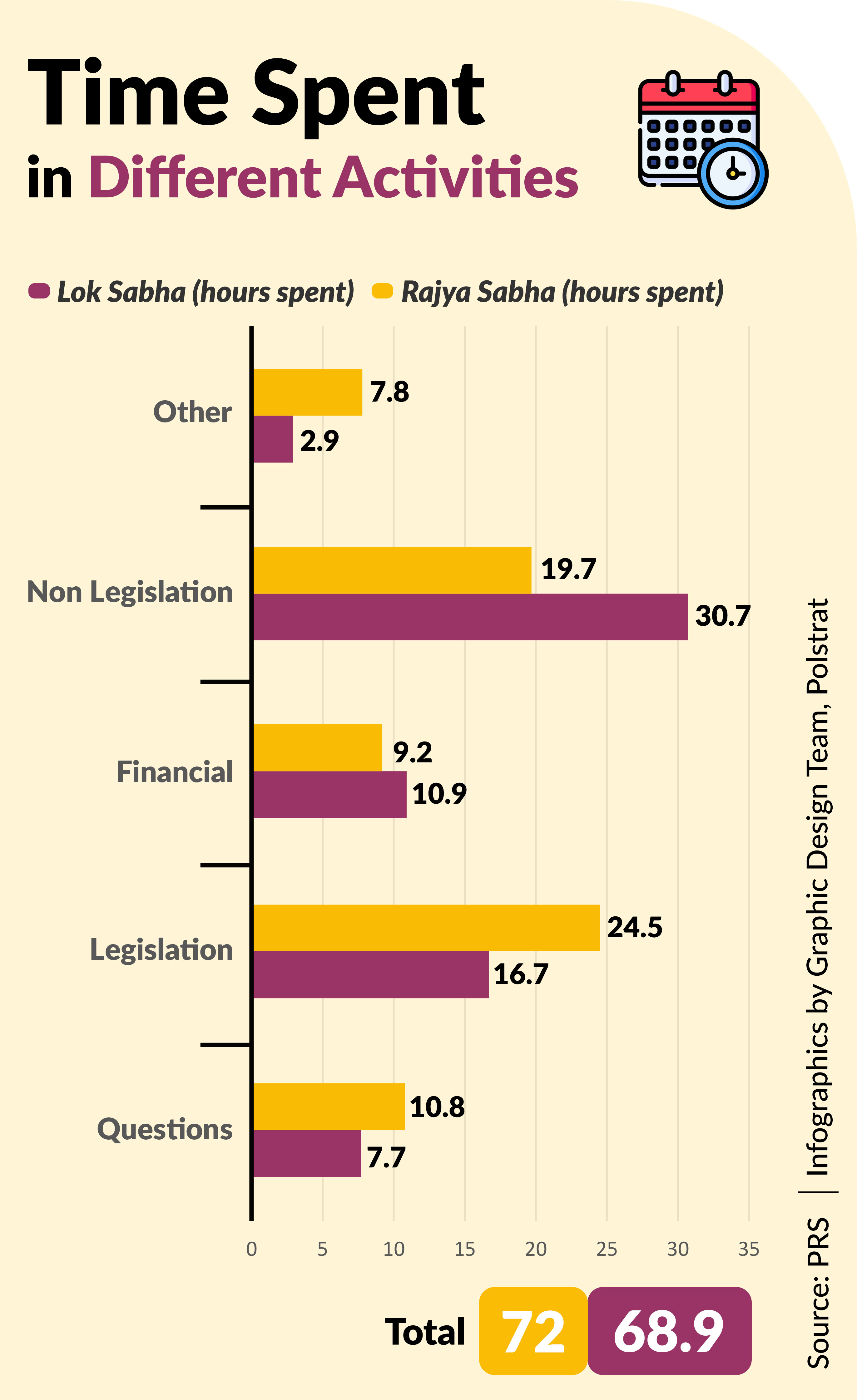
The Maritime Anti-Piracy Bill, 2022
The Bill provides for the prevention of maritime piracy and stringent punishment to those convicted of such crimes. The Bill passed on 21st December, will also enable India to fully comply with its internal obligations under the United Nations Convention on the Law of the Sea (UNCLOS) which will in turn improve India’s standing at various global forums. The Bill also includes provisions for the death penalty and life imprisonment for those who are convicted of maritime piracy. External Affairs Minister S Jaishankar detailed that the Bill will help strengthen the country’s maritime security. He went on to explain that since the Indian Penal Code and the Code of Criminal Procedure do not have a legal provision or specific law on maritime piracy, the Bill will prove to be an effective legal instrument against the issue. This is especially important given that India is one of the largest providers of seafarers in the world and often brings up the issue of maritime security at global forums.
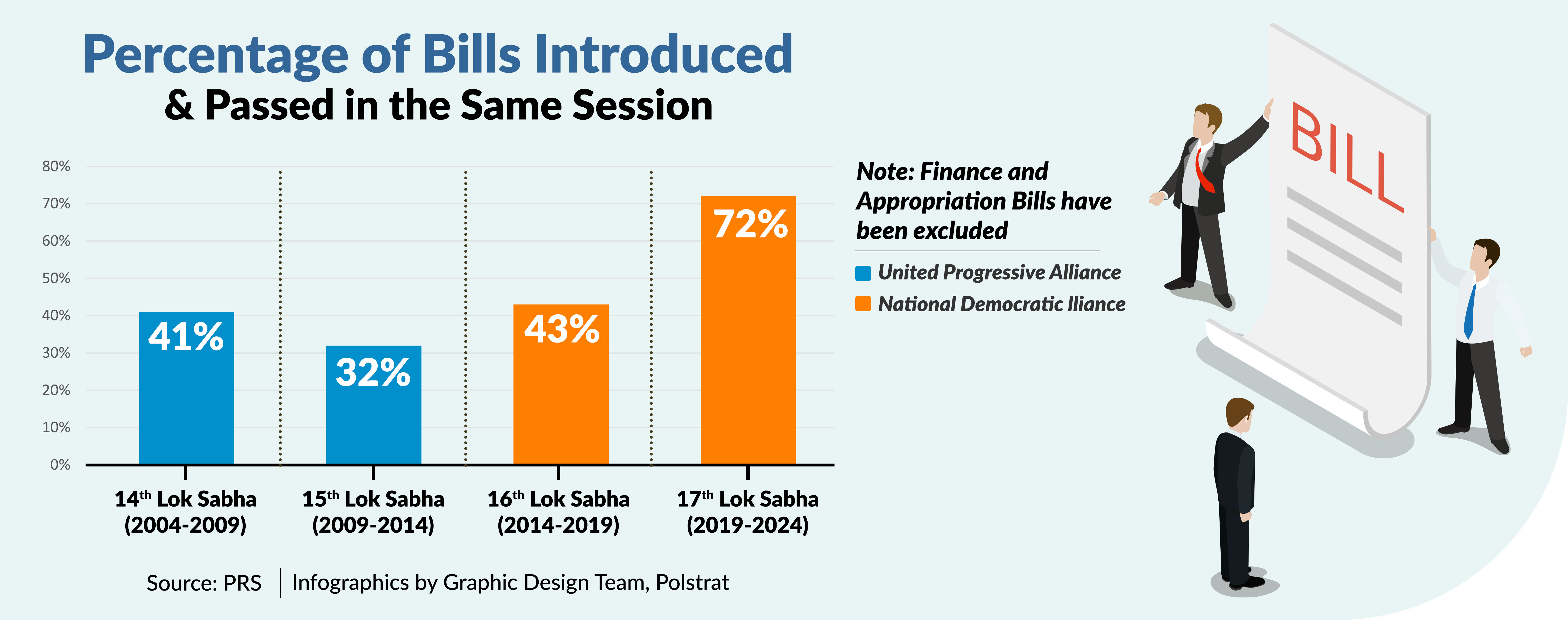
Appropriation (No.4) Bill, 2022 and Appropriation (No.5) Bill, 2022
The Appropriation (No.4) Bill, 2022 and Appropriation (No.5) Bill, 2022 were both passed during the winter session of the Parliament. As detailed in article 114 of the Constitution, the government can withdraw money from its Consolidated Fund only after receiving approval from Parliament. An Appropriation Bill specifies the quantum and purpose of the government for withdrawing money. The Consolidated Fund of India is made up of revenues received by the central government through taxation (Income Tax, Central Excise, Customs, and others) and non-tax revenue. Under the bills, the Union Finance minister introduced a supplementary demand for grants for the amount of Rs. 18, 860 crores. Union Finance Minister Nirmala Sitharaman also said that scheduled commercial banks have written off loans amounting to Rs 10,09,511 crore in the last five financial years and the process of recovery of dues from the borrowers continues.
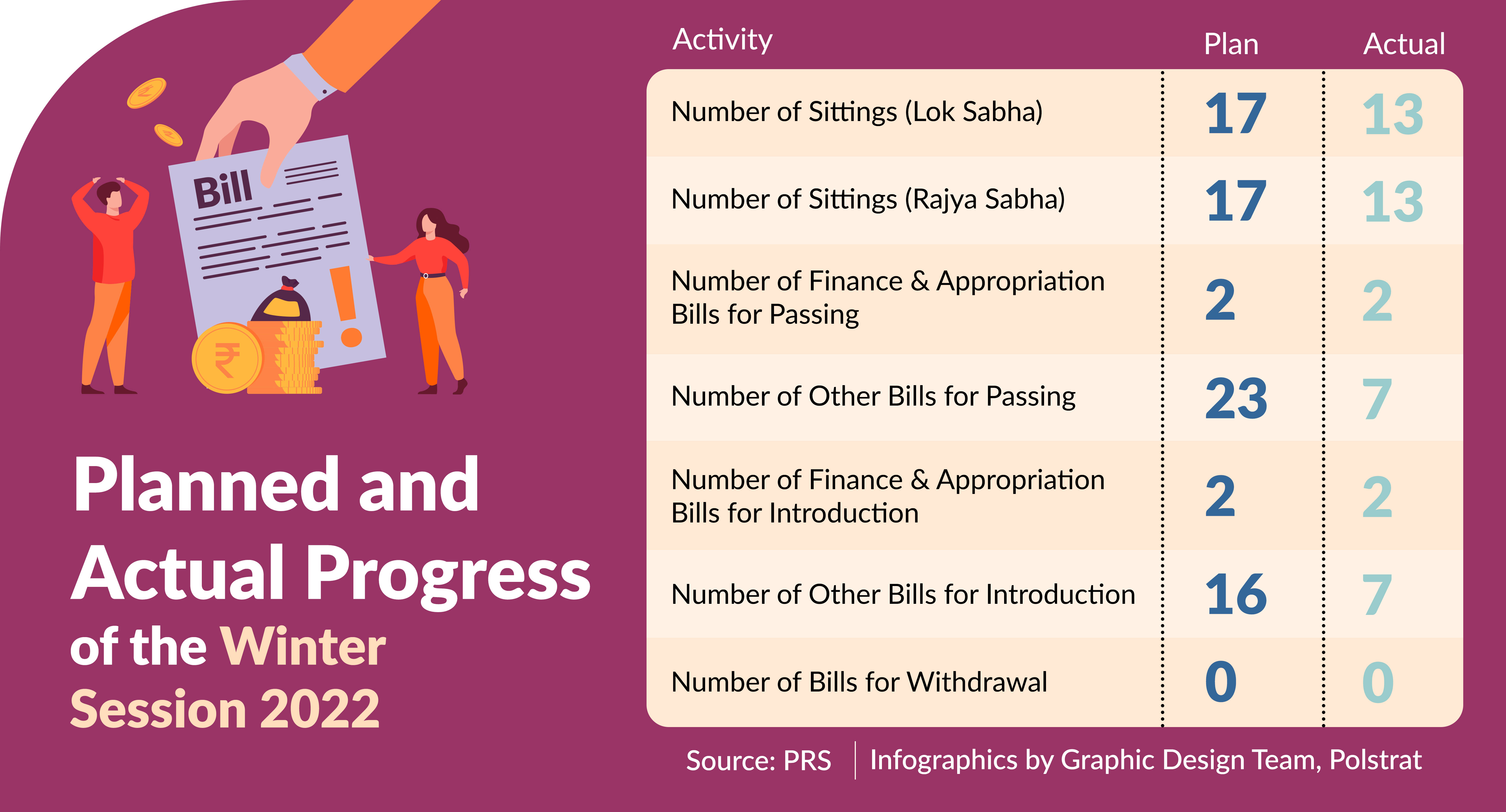
Opposition Raises Voice
Overall, the winter session of the Parliament was relatively smooth running, especially when compared to the previous few sessions which were marked by clashes between the opposition and treasury. The Lok Sabha functioned for 68.9 hours during this session, while Rajya Sabha functioned for 72 hours. During this session in the Lok Sabha, about 31 hours were spent on “non-legislation” matters while in the Rajya Sabha around 24 hours were spent on legislative matters. Overall, the upper house had a productivity rate of 97 per cent, while the Rajya Sabha had a productivity rate of 102 per cent. During an all-party meeting, the members of the opposition detailed some issues which would be raised during the sessions. These included matters of national security, China border “incursions”, inflation, especially the rise in prices of essential commodities and the issue of minimum support price (MSP), amongst others. Opposition members from the Congress, Communist Party of India (CPI), Communist Party of India (Marxist) (CPIM), and Trinamool Congress (TMC) in Rajya Sabha protested against the introduction of the Uniform Civil Code in India Bill, 2020. The Lok Sabha witnessed sloganeering and protests by the opposition, demanding a discussion on the India-China border clash.
